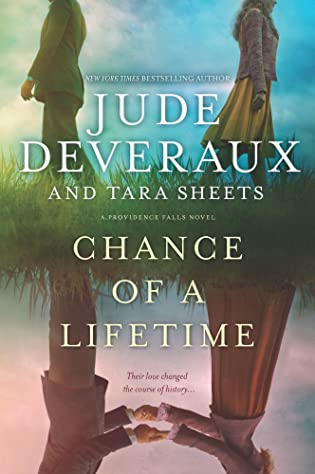 Chance of a Lifetime by Jude Deveraux, Tara Sheets
Chance of a Lifetime by Jude Deveraux, Tara Sheets Format: eARC
Source: supplied by publisher via Edelweiss
Formats available: hardcover, large print, paperback, ebook, audiobook
Genres: historical romance, time travel romance
Series: Providence Falls #1
Pages: 336
Published by Mira on September 15, 2020
Purchasing Info: Author's Website, Publisher's Website, Amazon, Barnes & Noble, Kobo, Bookshop.org
Goodreads
In one century she loved him madly, and in another she wants nothing to do with him
In 1844 Ireland, Liam O’Connor, a rogue and a thief, fell madly in love with a squire’s daughter and unwittingly altered the future. Shy and naive Cora McLeod thought Liam was the answer to her prayers. But the angels disagreed and they’ve been waiting for the right moment in time to step in.
Now Liam finds himself reunited with his beloved Cora in Providence Falls, North Carolina. The angels have given Liam a task. He must make sure Cora falls in love with another man—the one she was supposed to marry before Liam interfered. But this Cora is very different from the innocent girl who fell for Liam in the past. She’s a cop and has a confidence and independence he wasn’t expecting. She doesn’t remember Liam or their past lives, nor is she impressed with his attempts to guide her in any way.
Liam wants Cora for himself, but with his soul hanging in the balance, he must choose between a stolen moment in time or an eternity of damnation.
My Review:
I picked this up last year, but it fell into the black hole of “so many books, so little time” and I just didn’t get a round tuit. Fast forward a year later, I pick up the second book in the Providence Falls series, intending to review it for a tour, only to realize that An Impossible Promise isn’t so much the second book in a series, with the possibility it can be read as a standalone, as it is the second “chapter” of what appears to be a continuing story.
Whether that story concludes in An Impossible Promise or continues further, well, I’ll find that out next week. Thankfully this book tour is a bit open-ended. Because I’m not sure that reading that second book makes any sense at all without this first one.
Although I’m not totally sure this first one makes a whole lot of sense, either.
There’s a reason why time travel stories generally send their characters back in time rather than forward. Life probably wasn’t any simpler in the past – just that the complications were different then they are now. And there are any number of ways that the author can give their time travelers knowledge about the past they end up traveling to.
A character coming forward into the future has no clue what they’re letting themselves in for, not even in this particular instance when Liam O’Connor’s soul is fast forwarded from Ireland in 1844 to Providence Falls, North Carolina sometime more or less here and now.
But Liam has been sent forward to fix his own great mistake, at least according to the two angels who are doing the sending. Once upon a time, Liam fell in love with Cora McLeod, and very much vice versa. According to the angels, that was not her destined path. Cora was supposed to marry someone else and give birth to a child that was destined to “help” humanity . Instead, she died young, and has continued to do so in every reincarnation since.
Liam’s been sent forward in time to make sure that this time Cora fulfills her destiny. He’s been given a minimal number of tools, an even more minimal amount of the knowledge the angels believe he needs to live in the 21st century, an amazingly deep cover story, and a deadline.
He has three months to make sure that Cora marries the man she’s supposed to marry and not the man of her dreams. Because that would be Liam. If he does the right thing and gives up the only woman he has ever, or will ever, love, he’ll go to heaven.
But if he gives into his own heart, and hers, he’ll go straight to Hell.
Escape Rating C: I’ll say this up front. I had to chuck my common sense and my willing suspension of disbelief really far out the window in order to finish this book. Because there is just so much that makes me go “WTF?” over and over and honestly, over.
Maybe I’ve read too much fantasy and paranormal romance, because what the angels did gave me so many vibes that either they aren’t on the up and up, they’re not angels at all, or they just lied their wings off to Liam to get him to participate in whatever scam they’ve got going on.
I’m not saying they aren’t some kind of supernatural being of some sort, but this whole thing makes way more sense if they’re demons posing as angels. Or if the reason they’ve set Liam up like this is NOT what they said it was. Or if there’s something bigger and more important going on that hasn’t been revealed.
Part of that is because the time travel setup is way too much like Dorothy’s trip to Oz. Possibly including someone behind the curtain that Liam isn’t supposed to be paying attention to – but we’re not there yet by the end of this book.
Howsomever, what makes the time travel so “fishy” in this story is that every single person that Liam knew in mid-19th century Ireland has been reincarnated and relocated to 21st century North Carolina and THEY ALL HAVE THE EXACT SAME NAMES AND FACES. For the most part, they also have the exact same relationships to Liam and to each other that they did over 150 years ago and 8,000+ miles away.
This is not logical and my brain went ‘tilt’.
The other part that makes me question pretty much everything that Liam has been told about Cora, his mission in this future and his own fate is that, while Liam may have seduced Cora in their original timeline – and he maybe a himbo and a horndog in both timelines – he seems to really love Cora and in their original timeline she really loved him.
While 19th century Cora could have been forced to marry the man her father picked out for her, 21st century Cora lives in an entirely different world of choices and options. And the 21st century reincarnation of the man she’s supposed to marry is a really nice guy with zero charisma that Cora has been friends with for years. He may be in love with Cora, but she just likes him as a friend. Every once in a while she feels a bit more, but it’s so rare that it’s more than possible that someone is manipulating her. As things stand when this part of the story ends, I’m not seeing anything that remotely resembles a Happy Ever After for Cora with this particular “destiny” as someone else’s endgame.
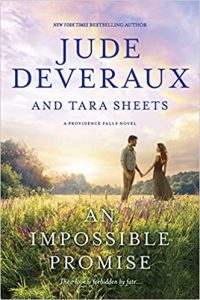 Because I already don’t trust those angels, I’d be putting my money on them as the manipulators. Especially since we don’t really know why it is just so damn important that Cora marry this guy that so many people are being maneuvered to make it happen. The angels could be telling the truth about the child that never was, or it could be part of whatever scam they’ve got going on.
Because I already don’t trust those angels, I’d be putting my money on them as the manipulators. Especially since we don’t really know why it is just so damn important that Cora marry this guy that so many people are being maneuvered to make it happen. The angels could be telling the truth about the child that never was, or it could be part of whatever scam they’ve got going on.
So the story so far is a bit of a hot mess. I like Cora and Liam well enough, and am more than dead curious enough about those angels and what’s really going on that I’m definitely reading An Impossible Promise next week in the hopes of possibly finding out what all of this is leading to.

 Radar Girls: a novel of WWII by
Radar Girls: a novel of WWII by  Escape Rating B+: I picked this up because I enjoyed the author’s previous book,
Escape Rating B+: I picked this up because I enjoyed the author’s previous book, 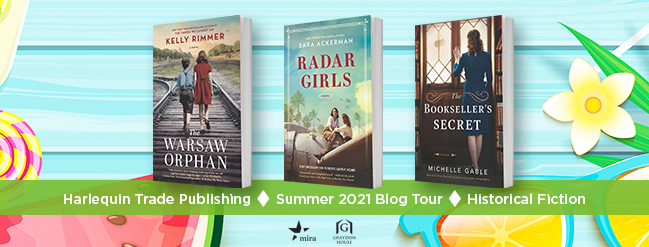
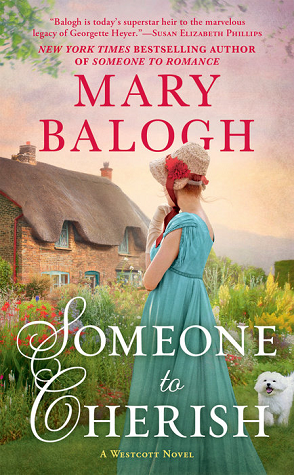 Someone to Cherish (Westcott #8) by
Someone to Cherish (Westcott #8) by 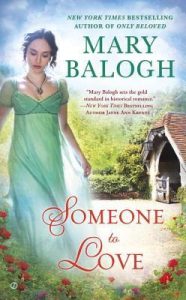 There should be a truly hot place in hell for the late, unlamented Humphrey Westcott, Earl of Riverdale. But, and it is now a huge, 8 marvelous books and counting BUT, the results of his metaphorical bastardy, to whit, the legal and actual bastardy he inflicted on his three children who believed they were legitimate, have been glorious.
There should be a truly hot place in hell for the late, unlamented Humphrey Westcott, Earl of Riverdale. But, and it is now a huge, 8 marvelous books and counting BUT, the results of his metaphorical bastardy, to whit, the legal and actual bastardy he inflicted on his three children who believed they were legitimate, have been glorious.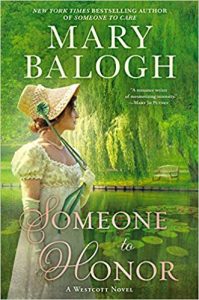 A freedom that she will lose if she trusts herself to another man – no matter how much that man claims to love her. After growing up in an environment designed to keep her childlike, and marrying a man she loved but who dictated her every move and thought, the first person whose judgement she questions is always herself.
A freedom that she will lose if she trusts herself to another man – no matter how much that man claims to love her. After growing up in an environment designed to keep her childlike, and marrying a man she loved but who dictated her every move and thought, the first person whose judgement she questions is always herself.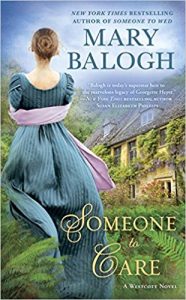 Escape Rating B: This one turned out to be kind of a mixed bag for me as a reader. I got up on that really tall soapbox because there were a lot of elements of the setup that obviously drove me utterly bananas. It has felt like every other book that I’ve read in the last couple of months has been chock-full of families with boundary issues and generally heroines who have trouble saying “NO” and setting and maintaining boundaries with their well-meaning but annoyingly intrusive families.
Escape Rating B: This one turned out to be kind of a mixed bag for me as a reader. I got up on that really tall soapbox because there were a lot of elements of the setup that obviously drove me utterly bananas. It has felt like every other book that I’ve read in the last couple of months has been chock-full of families with boundary issues and generally heroines who have trouble saying “NO” and setting and maintaining boundaries with their well-meaning but annoyingly intrusive families.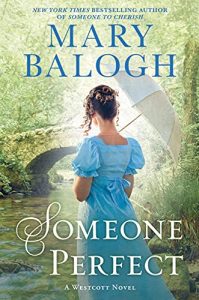 So as much as I’ve enjoyed this series as a whole, the book in the series that this one most reminds me of is
So as much as I’ve enjoyed this series as a whole, the book in the series that this one most reminds me of is 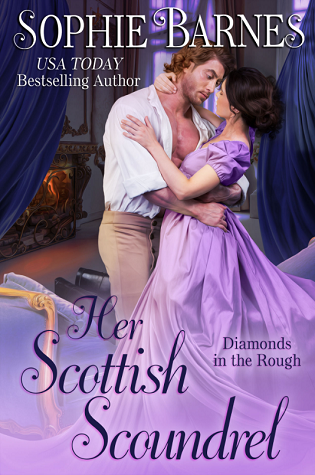 Her Scottish Scoundrel (Diamonds in the Rough, #7) by
Her Scottish Scoundrel (Diamonds in the Rough, #7) by  Where Blayne gets himself in trouble is that he can’t bear to watch that diminishment, no matter how dangerous it makes his own situation. And it IS dangerous. Because he is not what he seems.
Where Blayne gets himself in trouble is that he can’t bear to watch that diminishment, no matter how dangerous it makes his own situation. And it IS dangerous. Because he is not what he seems.

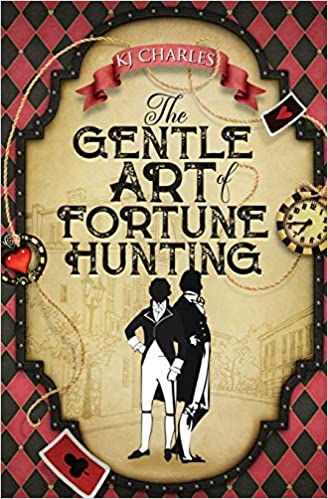 The Gentle Art of Fortune Hunting by
The Gentle Art of Fortune Hunting by 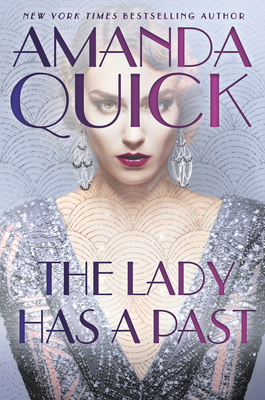 The Lady Has a Past (Burning Cove #5) by
The Lady Has a Past (Burning Cove #5) by 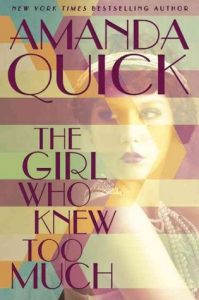 All the ladies in this story have a past. Honestly, all the ladies in every Amanda Quick/Jayne Ann Krentz/Jayne Castle story have a past. It makes them all that much more interesting to read about – and just that much more fascinating for the heroes who oh-so-frequently come to rescue them – but generally end up fighting right alongside them.
All the ladies in this story have a past. Honestly, all the ladies in every Amanda Quick/Jayne Ann Krentz/Jayne Castle story have a past. It makes them all that much more interesting to read about – and just that much more fascinating for the heroes who oh-so-frequently come to rescue them – but generally end up fighting right alongside them.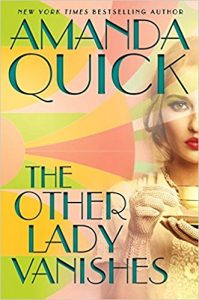 Escape Rating B+: This is the fifth book in the author’s
Escape Rating B+: This is the fifth book in the author’s 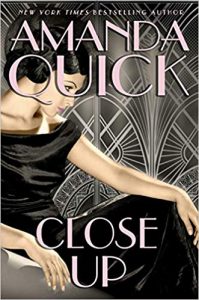 And one of the things that I love about anything tied to the Arcane Society, however tangentially as Burning Cove seems to be, is the way that the heroines are either forced to or decide to ignore the restrictions placed on women in every time period – at least so far – and live the lives they choose – damn the torpedoes and full speed ahead – even with the not-so-occasionally forced step back.
And one of the things that I love about anything tied to the Arcane Society, however tangentially as Burning Cove seems to be, is the way that the heroines are either forced to or decide to ignore the restrictions placed on women in every time period – at least so far – and live the lives they choose – damn the torpedoes and full speed ahead – even with the not-so-occasionally forced step back. The Venice Sketchbook by
The Venice Sketchbook by 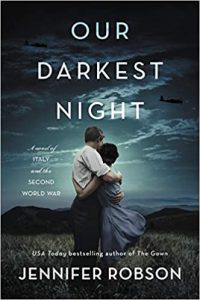 Escape Rating B-: World War II is a rich period for historical fiction of all types and stripes. To the point where I have three books in a row that are set during the same period, Friday’s
Escape Rating B-: World War II is a rich period for historical fiction of all types and stripes. To the point where I have three books in a row that are set during the same period, Friday’s 
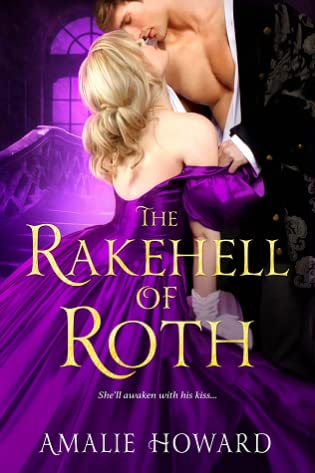 The Rakehell of Roth (Regency Rogues, #2) by
The Rakehell of Roth (Regency Rogues, #2) by 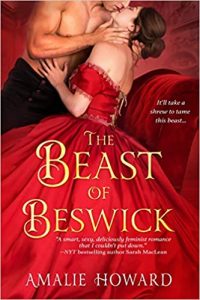 And that the scene where they save each other from thieves, kidnappers and murderers and then screw each other senseless was the only point where I missed having read the first book in the series,
And that the scene where they save each other from thieves, kidnappers and murderers and then screw each other senseless was the only point where I missed having read the first book in the series, 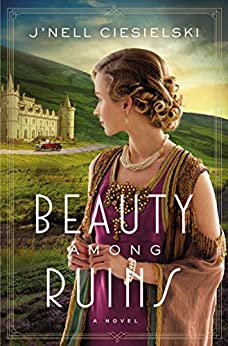 Beauty Among Ruins by
Beauty Among Ruins by 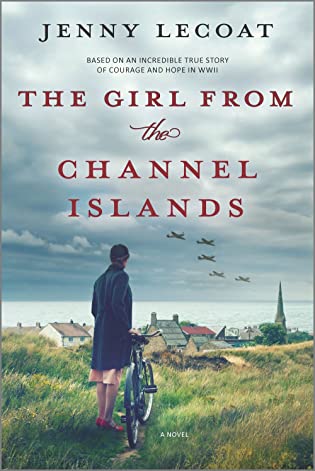 The Girl from the Channel Islands by
The Girl from the Channel Islands by 